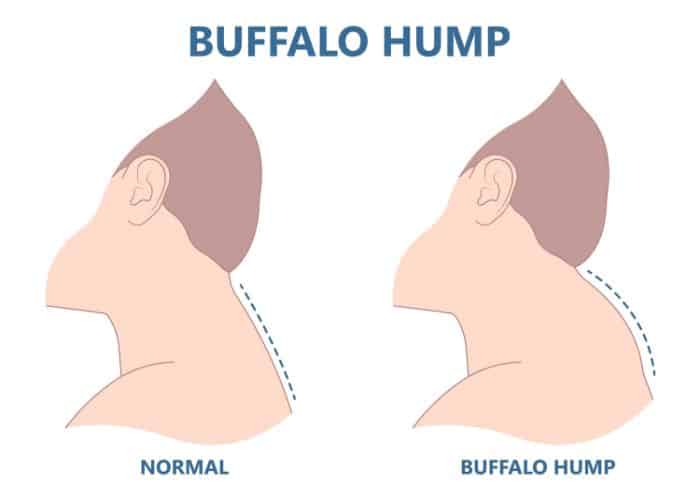Weight loss is a topic that has been extensively researched and discussed in recent years. People are always looking for new and effective ways to shed unwanted pounds and improve their overall health. One of the latest trends in the weight loss industry is the use of essential oils. But the question remains: is weight loss oil effective?
Proponents of essential oils for weight loss claim that these oils can help boost metabolism, reduce appetite, and increase energy levels. Some of the most commonly used oils for weight loss include grapefruit, peppermint, ginger, and cinnamon. While there is some evidence to suggest that these oils may have some weight loss benefits, it is important to note that they are not a magic solution. A healthy diet and regular exercise are still the most effective ways to lose weight and keep it off.
Contents
Understanding Weight Loss Oils

Weight loss oils are oils that are believed to help with weight loss. These oils are often made from natural ingredients such as herbs, fruits, and vegetables. Some of the most popular weight loss oils include coconut oil, olive oil, and essential oils.
Coconut oil is a medium-chain triglyceride (MCT) oil that is believed to help with weight loss by increasing metabolism and reducing appetite. Studies have shown that incorporating coconut oil into your diet can lead to a reduction in body weight and waist circumference. However, it is important to note that coconut oil is high in calories and should be consumed in moderation.
Olive oil is a healthy source of monounsaturated fats and medium-chain triglycerides, both of which have been shown to offer potential benefits for weight loss. While there are claims that olive oil can help with weight loss, more research is needed to determine its effectiveness.
Essential oils, such as grapefruit oil and peppermint oil, are believed to help with weight loss by reducing appetite and increasing metabolism. However, it is important to note that essential oils should not be consumed orally and should be used in moderation.
Overall, weight loss oils may offer some potential benefits for weight loss, but more research is needed to determine their effectiveness. It is important to speak with a healthcare professional before incorporating weight loss oils into your diet to ensure that they are safe and effective for you.
Effectiveness of Weight Loss Oils
Weight loss oils have been gaining popularity in recent years as a natural and alternative method to aid in weight loss. However, the effectiveness of these oils is a topic of debate. In this section, we will explore the scientific evidence and user testimonials on the effectiveness of weight loss oils.
Scientific Evidence
There is some scientific evidence that suggests certain weight loss oils may be effective in aiding weight loss. For example, a study published in the Journal of Medicinal Food found that consuming coconut oil can increase energy expenditure and lead to a reduction in body fat. Another study published in the International Journal of Obesity found that consuming medium-chain triglycerides (MCT) oil can increase satiety and reduce food intake.
However, it is important to note that these studies have limitations, such as small sample sizes and short study durations. Additionally, there is limited research on the long-term effects of weight loss oils on weight loss and overall health.
User Testimonials
Many individuals have reported success in using weight loss oils to aid in their weight loss journey. Some common weight loss oils that users have reported success with include coconut oil, MCT oil, and essential oils such as grapefruit, lemon, and peppermint oil.
However, it is important to note that user testimonials are subjective and not scientifically proven. Additionally, individual results may vary based on factors such as diet, exercise, and overall lifestyle habits.
In conclusion, while there is some scientific evidence and user testimonials that suggest weight loss oils may be effective in aiding weight loss, more research is needed to fully understand their effectiveness and long-term effects on overall health. It is important to consult with a healthcare professional before incorporating weight loss oils into your weight loss journey.
How Weight Loss Oils Work

Weight loss oils are a popular alternative therapy for those looking for a natural way to lose weight. These oils are derived from plants and contain various compounds that are believed to aid in weight loss. In this section, we will discuss how weight loss oils work.
Absorption Through Skin
One of the most common ways to use weight loss oils is by applying them topically to the skin. When applied to the skin, the oils are absorbed into the bloodstream and can have a systemic effect on the body. Some oils, such as grapefruit oil, are believed to help break down fat cells and increase metabolism, which can aid in weight loss.
Inhalation Effects
Another way to use weight loss oils is by inhaling them. When inhaled, the oils stimulate the olfactory system, which can have a direct effect on the brain. This can help to reduce cravings and increase feelings of fullness, which can aid in weight loss. Some oils, such as peppermint oil, are believed to help suppress appetite and reduce food intake.
It is important to note that weight loss oils should not be used as a substitute for a healthy diet and exercise. While they may aid in weight loss, they are not a magic solution and should be used in conjunction with other healthy lifestyle habits.
In conclusion, weight loss oils work by being absorbed through the skin or inhaled. They contain compounds that can aid in weight loss, such as increasing metabolism and reducing cravings. However, they should be used in conjunction with a healthy diet and exercise and should not be relied on as a sole method of weight loss.
Popular Types of Weight Loss Oils
When it comes to weight loss, essential and herbal oils have gained popularity as a natural alternative to support weight loss efforts. While these oils are not a magic solution to weight loss, they can be a useful addition to a healthy lifestyle. In this section, we will explore the most popular types of weight loss oils available.
Essential Oils
Essential oils are highly concentrated plant extracts that are obtained through distillation or cold-pressing. They are often used for aromatherapy, massage, and as a natural remedy for various health conditions. Here are some of the most popular essential oils for weight loss:
- Grapefruit oil: Grapefruit oil is known for its ability to boost metabolism and reduce appetite. It contains compounds like D-limonene that can help break down body fat.
- Lemon oil: Lemon oil has a detoxifying effect on the body and can help improve digestion. It also contains compounds that can help reduce inflammation and support weight loss.
- Peppermint oil: Peppermint oil can help reduce cravings and appetite. It also has a cooling effect that can help reduce stress and anxiety, which can contribute to overeating.
- Cinnamon oil: Cinnamon oil can help regulate blood sugar levels and reduce cravings for sweets. It can also boost metabolism and help burn fat.
Herbal Oils
Herbal oils are made by infusing herbs in a carrier oil, such as olive oil or coconut oil. They are often used in cooking and can provide a range of health benefits. Here are some of the most popular herbal oils for weight loss:
- Coconut oil: Coconut oil is rich in medium-chain triglycerides (MCTs), which can help boost metabolism and reduce appetite. It can also improve cholesterol levels and support brain function.
- Olive oil: Olive oil is a good source of monounsaturated fatty acids (MUFAs), which can help reduce inflammation and improve insulin sensitivity. It can also help reduce the risk of heart disease and support weight loss efforts.
- Flaxseed oil: Flaxseed oil is rich in omega-3 fatty acids, which can help reduce inflammation and improve heart health. It can also help reduce appetite and support weight loss efforts.
In conclusion, essential and herbal oils can be a useful addition to a healthy lifestyle and weight loss efforts. However, it is important to remember that they are not a magic solution and should be used in conjunction with a balanced diet and regular exercise. It is also important to use high-quality oils and consult with a healthcare professional before using them as a supplement.
Potential Side Effects

While weight loss oils may have some benefits, it is important to consider the potential side effects that come with using them. Here are some of the most common side effects associated with weight loss oils:
- Gastrointestinal Issues: Some weight loss oils, such as MCT oil, can cause gastrointestinal issues such as diarrhea, nausea, and stomach discomfort. These side effects are usually mild and go away on their own after a few days.
- Fishy Aftertaste: Fish oil supplements are a popular weight loss oil, but they can leave a fishy aftertaste in your mouth. This can be unpleasant for some people, but it is not harmful.
- Blood Clotting: Fish oil supplements can also cause blood thinning, which can be dangerous for people who are already taking blood-thinning medication or have a bleeding disorder.
- Liver Damage: Some weight loss oils, such as kava kava oil, have been linked to liver damage. It is important to talk to your doctor before using any weight loss oil to make sure it is safe for you.
It is important to note that these side effects are not guaranteed to occur and may only affect a small percentage of people. However, it is still important to be aware of them and talk to your doctor before starting any weight loss oil regimen.
Conclusion
In conclusion, the use of weight loss oils as a standalone solution for weight loss is not supported by sufficient scientific evidence. While some studies have shown promising results, they are often limited in scope and have not been replicated on a larger scale.
It is important to note that any weight loss oil should be used in conjunction with a healthy diet and regular exercise to achieve optimal results. Additionally, it is crucial to choose oils that are high in monounsaturated and polyunsaturated fats, such as olive oil and avocado oil, over oils that are high in saturated and trans fats.
Furthermore, it is important to consult with a healthcare professional before incorporating any weight loss oil into your diet, as certain oils may interact with medications or have adverse effects on certain medical conditions.
Overall, while weight loss oils may have some potential benefits, they should not be relied upon as the sole solution for weight loss. A comprehensive approach that includes a healthy diet, regular exercise, and potentially the use of weight loss oils as a supplement may be the most effective way to achieve and maintain a healthy weight.






